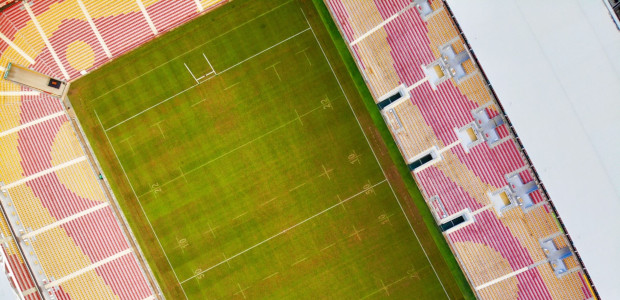Is a reduced squad for the Six Nations a major worry for England coach Eddie Jones?
With the Six Nations now just around the corner, all of the participating teams’ coaches will have their minds fully set on the competition. For England coach Eddie Jones, however, there has been somewhat of a late setback.
Following discussions on how to minimalize the spread of coronavirus between the Rugby Football Union (RFU) and Premiership clubs, it has been agreed that the Australian will be able to bring just 28 players into the England set-up for this year’s championship, and he will only be able to use those selected players for the entirety of the competition. The ones who make the squad will also not be released to play for their respective clubs throughout the duration of the tournament.
England are the heavy favourites with Betdaq to defend their Six Nations crown this year, but how much of an impact will a reduced squad for the competition have on their chances of winning the competition? Well, of course there is no doubt that Jones will still have a very experienced contingent for the tournament.
In terms of forwards, we can expect to see the likes of Mako Vunipola, Joe Marler and Ellis Genge, who have over 140 England caps between them, included, whilst the experienced Jamie George and Luke Cowan-Dickie will make up the remainder of Jones’ front-row picks.
Second-rows Maro Itoje and Courtney Laws will both without a doubt be selected by Jones, with back-rows Billy Vunipola, Tom Curry and Sam Underhill all also certainties to be named.
The ever-reliant duo of Ben Youngs and captain Owen Farrell are sure to be the scrum-half/fly-half pairing, whilst regular backs Elliot Daly, Anthony Watson, Jonny May and George Ford will surely all be called upon by Jones when he makes his squad announcement in the coming days.
A positive for the head coach is that his backs boast a lot of versatility. Farrell is just as good at inside centre as he is at No. 10, meaning that Jones could opt to use his captain in the middle of the park with Ford covering at fly-half. Henry Slade is also able to cover Farrell at fly-half, whilst he isn’t a half-bad full-back either.
Vice-captain Watson is also able to switch between the wing and No. 15, whilst Daly is able to play in a whole host of positions, including at centre, on the wing and at full-back.
Of course, there are a number of negatives about having just a 28-man squad. The first is fitness levels, or the lack of them. The members of the squad from Championship side Saracens have not played a minute of rugby since England’s victory in the inaugural Autumns Nations Cup. That includes Daly, Mako Vunipola, Itoje and even Farrell.
Lack of game time could play a major factor for England. Their first game is against Scotland at Twickenham, and that fixture between the two old foes is often an intense, gruelling and physical 80 minutes of rugby. It will certainly be a test for those who haven’t played since the Autumn Nations Cup final against France in early December. By the time the Scotland fixture rolls around, that will more-or-less equate to two full months without game time.
Aside from the first fixture, those who lack game time will also need to get back in the swing of things rather quickly. After all, the first three games of the competition are on a weekly basis, and following the two-week break mid-competition, England face arguably their toughest two games – France and Ireland. So, there will be little room for tiredness amongst the squad at the back end of the competition, especially as Jones is working with such a small squad.
The second disadvantage of the 28-man squad is that there is no room for fresh faces. This is probably not as important in the short-term, but could play a part in England’s long-term plan, especially as so many of the old guard above are now in their thirties.
Of course, the smaller squad could also work in Jones’ favour. Whilst he is used to having between 32-36 players at his disposal, working with a core group of players will be easy for Jones to get his instructions across and with the same players lining-up week-after-week, it gives them the chance to build more of an understanding on the pitch.
Whilst it won’t be a major worry for Jones, we won’t truly know the effect of a streamlined squad until the first week or two of the Six Nations. But England have an experienced enough bunch to deal with anything thrown their way, and don’t count them out of lifting the title just yet.
